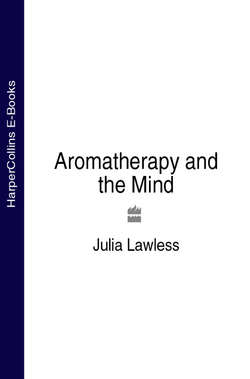Читать книгу Aromatherapy and the Mind - Julia Lawless - Страница 6
ОглавлениеForeword
Aromatherapy and the Mind explores the impact of scent on human consciousness throughout history. Part I asserts that scent is not only therapeutic and aesthetic, but profoundly psychoactive. It examines the way that botanical aromatics evolved through the use of incense, perfume, the symbolic imagination and psycho-aromatherapy. We are introduced to ancient fragrant myths, magic and romance, as well as modern aromatic psychology and science.
This book is an aromatic treasure chest, for there is a wealth of information here. It is peppered with apt literary quotations and redolent poetic images. Part II is a compilation of the psychoactive and therapeutic properties of specific oils and an excellent complement to Lawless’s earlier work, The Encyclopaedia of Essential Oils. For those interested in the history of aromatic psychology, Aromatherapy and the Mind presents a captivating cross-cultural overview beginning with Sumeria, Egypt, Greece and Rome. A central theme of the book is concerned with archaic magical-alchemical consciousness and how it was supplanted by scientific materialism, culminating in the mind/body split of the seventeenth-century scientific revolution.
Within the last 20 years we have seen the emergence of a new paradigm which has been reflected in literature and lecture theaters by a new physics, a new biology, a new botany, a new archaeology and a new aromatics. What makes each of these disciplines ‘new’ is the addition of mind and conscious awareness to their knowledge base. Not ‘mind’ in a limited sense as the mental power of logical thought, but ‘mind’ in a more expanded sense which includes spirit. Mind in this larger view animates and interacts with the physical environment, which it can either make sacred or desecrate. This knowledge is ancient and is evident in magic, meditation and early forms of religion.
Paradoxically, this new dimension of mind is also what reconnects each of these contemporary disciplines to their ancient roots before there was a division between psyche and soma. Today there is an intuition within the aromatherapy community to remember the severed links between mind, body and fragrance. This trend is part of the olfactory renaissance. Aromatherapy and the Mind puts this renaissance in historical perspective.
I met Julia when English aromatherapy was still in its infancy. We share an aromatic lineage. Her mother Kerttu Smith, a Finnish biochemist, introduced me to the fragrant virtues of aromatic oils which I distributed for her company Natural Essence in London.
In 1982 when I met Kerttu, I was a visiting lecturer in megalithic archaeology and general systems theory at the School of Environmental Studies, University of London. Among the libraries that I frequented was the Warburg Institute. This unique collection specializes in texts and studies of the survival of classical antiquity in the civilization of Western Europe. The library was a delight to explore. It exuded an almost monastic ambience of hushed silence and academic reflection. Thus when Julia told me that she had done her historical aromatic research at the Warburg Institute, I could relate to the seasoned atmosphere in which this book took root and blossomed.
Aromatherapy and the Mind is a scholarly bouquet for us, an impressive distillation of aromatic history and psychology. It will be especially rewarding for those practitioners who have absorbed and already practice ‘the lavender-for-headaches’ level of aromatherapy and desire more knowledge about the subtle effects of aromatherapy on the mind.
John J. Steele
Lifetree Aromatix
Sherman Oaks, California
November, 1993
